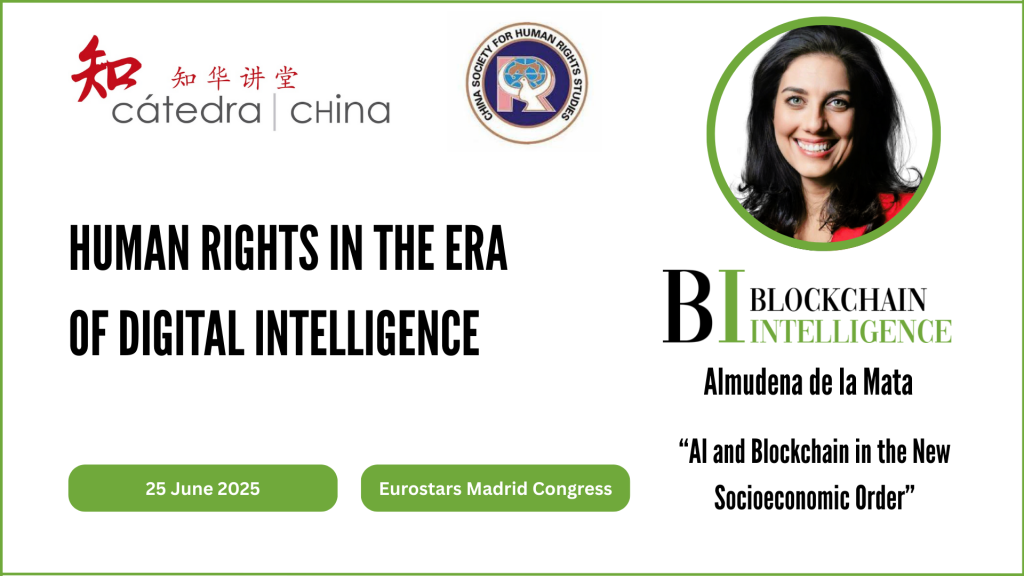
Almudena de la Mata Discusses AI, Blockchain, and Human Rights at International Forum
How can emerging technologies like AI and blockchain protect human rights? And how do we define ethical and legal boundaries before it’s too late?
These questions were central to the international forum “Human Rights in the Era of Digital Intelligence”, held on June 25 at Eurostars Madrid Congress, organized by the China Society for Human Rights Studies and Fundación Cátedra China. Dr. Almudena de la Mata, CEO of BlockchAIn Intelligence, joined the discussion, bringing insights from her research and experience on AI, blockchain, and human rights.
Almudena participated in a panel moderated by Xiao Junyong and Peter Herrmann, titled “AI and Blockchain in the New Socioeconomic Order: How the Convergence of Artificial Intelligence and Blockchain Is Rewriting the Rules of the Digital World through Trust, Autonomation, and Neural Networks.” The session explored the ethical, legal, and societal challenges of digital technologies, emphasizing the need for responsibility and human-centered governance.
During her intervention, Almudena highlighted the risks posed by fragmented legal systems, unregulated jurisdictions, and the misuse of AI in mass surveillance or biased decision-making. At the same time, she underscored AI’s potential to defend human rights, improve access to justice, and enhance accountability when implemented responsibly.
She addressed key issues including:
For BlockchAIn Intelligence, the forum reaffirmed that debates on AI are not only regulatory but also moral and civic. Almudena stressed the urgency of acting with clarity, courage, and shared responsibility to ensure that AI and blockchain serve people, not undermine rights.
Her contribution reflects a lifetime of study and experience, including a specialization in human rights with judges from the European Court of Human Rights during her EU law master’s at Europa-Institut, Saarland University, a foundation that continues to guide her work today.
